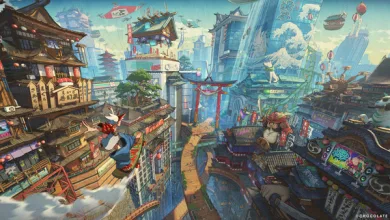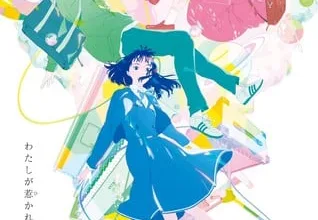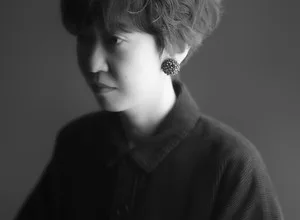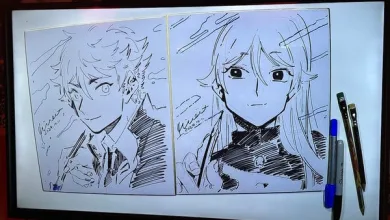Fresh and New Everytime: The Music of Creepy Nuts
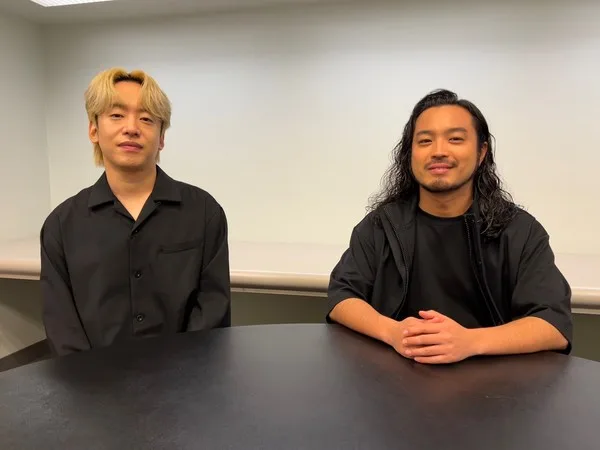
ANN’s coverage of Anime NYC 2024 sponsored by Yen Press and Ize Press!
Hip-hop duo Creepy Nuts performed earlier this year at Anime NYC, delivering a high-energy show filled with multi-genre hits. Made up of DJ Matsunaga and rapper R-Shitei, the setlist included many of their top hits, including anime-associated fan favorites like “Bling-Bang-Bang-Born” from Mashle: Magic and Muscles, “Daten,” and “Yofukashi no Uta” from Call of the Night. We had the privilege of sitting down with them for a quick conversation to chat about their writing process and their inspirations.
Your music encompasses a lot of different styles and genres, from ska to hip hop to music people would probably describe as pop or rock. What influences each new song that you’re writing?
DJ Matsunaga: I always want to make songs that I’ve never made before. I want the music to be fresh and new every time; I focus a lot on that.
R-Shitei: I enjoy taking fresh, new approaches to the diverse beats and music that Matsunaga-san creates. I get my source of creativity by trying to constantly evolve, by striving to be a better version of myself. When we work together, we create music that doesn’t exist by mixing and bringing the best out of each other.
When producing a new track, do you already know what you want that new sound to be like? Or do you just continually bounce off each other and have the song evolve through that creative process?
DJ Matsunaga: I’d say the latter. Every time you make music, you’re waiting for a happy accident.
R-Shitei: It’s rare to see the finished image as you start working. Even if you can, it’s a battle of how to surpass each other’s imaginations. I want to respond to Matsunaga-san’s beats and tracks with raps and melodies that go beyond his imagination. Matsunaga-san also adds arrangements to what I put together that goes beyond my imagination. We surpass each other’s expectations in a good way. And the result is the finished product.
It’s cool that with your individual music backgrounds, you come from these subcultures that value this idea of “battling,” like rap battles or B2Bs. How much do you pull from these types of individual experiences when creating music apart from each other, and how do they synergize when you’re creating together?
DJ Matsunaga: Yes. I think that was a big factor… but I wonder.
R Shitei: There are creative battles when we make songs. The things we’ve cultivated through DJ battles, MC battles, and rap battles can be surprisingly demonstrated during live performances.
DJ Matsunaga: Our songwriting is completely different.
R Shitei: During live performances, when something unexpected happens, or if some trouble occurs, we might change parts of the lyrics at the venue, during the MC, or incorporate events that happened that day. It might be an inheritance of what we’ve cultivated in rap battles, conversations, and battles with the audience. When Matsunaga-san responds to unexpected situations, he brings out what he’s cultivated there, and when we perform live, we often use our experience of battling each other.
DJ Matsunaga: That’s true, that’s true.
During live performances, you’re getting so much energy from the audience. How much do you think that influences you? Not only as artists but also as performers.
R-Shitei: When we write songs, in some cases, we have songs that sing about introspective, personal things. So, a lot of the stories are very personal. Due to the nature of writing lyrics in rap, especially in the hip-hop genre, that doesn’t change much as an artist. Outside influences also come into play, but when I perform live, I can deliver my personal stories to people I’ve never met or people in a different country (like at Anime NYC). Even if they don’t understand every word, I feel very happy when I think that the melody, flow, and various other elements have conveyed something like the core of the music. It has a good influence on me. Even if they don’t understand my personal lyrics, if I can sense from the audience’s expressions and reactions that it seems to have reached them somehow, my mood also rises. The me who creates and the me who performs become one on stage. I feel a strong connection with the audience’s reactions.
Speaking of your writing process, can you tell us about your approach to creating “Otonoke,” the new opening theme for DAN DA DAN?
R-Shitei: Usually Matsunaga-san makes the beat track first and gives it to me, and then I add the rap on it and send it back. This time, for “Otonoke,” I had an idea, so I sang it acappella but without words – just the chorus in scat. I did a verse, bridge, and hook in acappella scat, sent it to Matsunaga-san, and asked him to add the sound. It started in a different way than usual. From there, it was business as usual. We arranged, iterated, and created it through exchanges of creativity.
Source link
#Fresh #Everytime #Music #Creepy #Nuts

